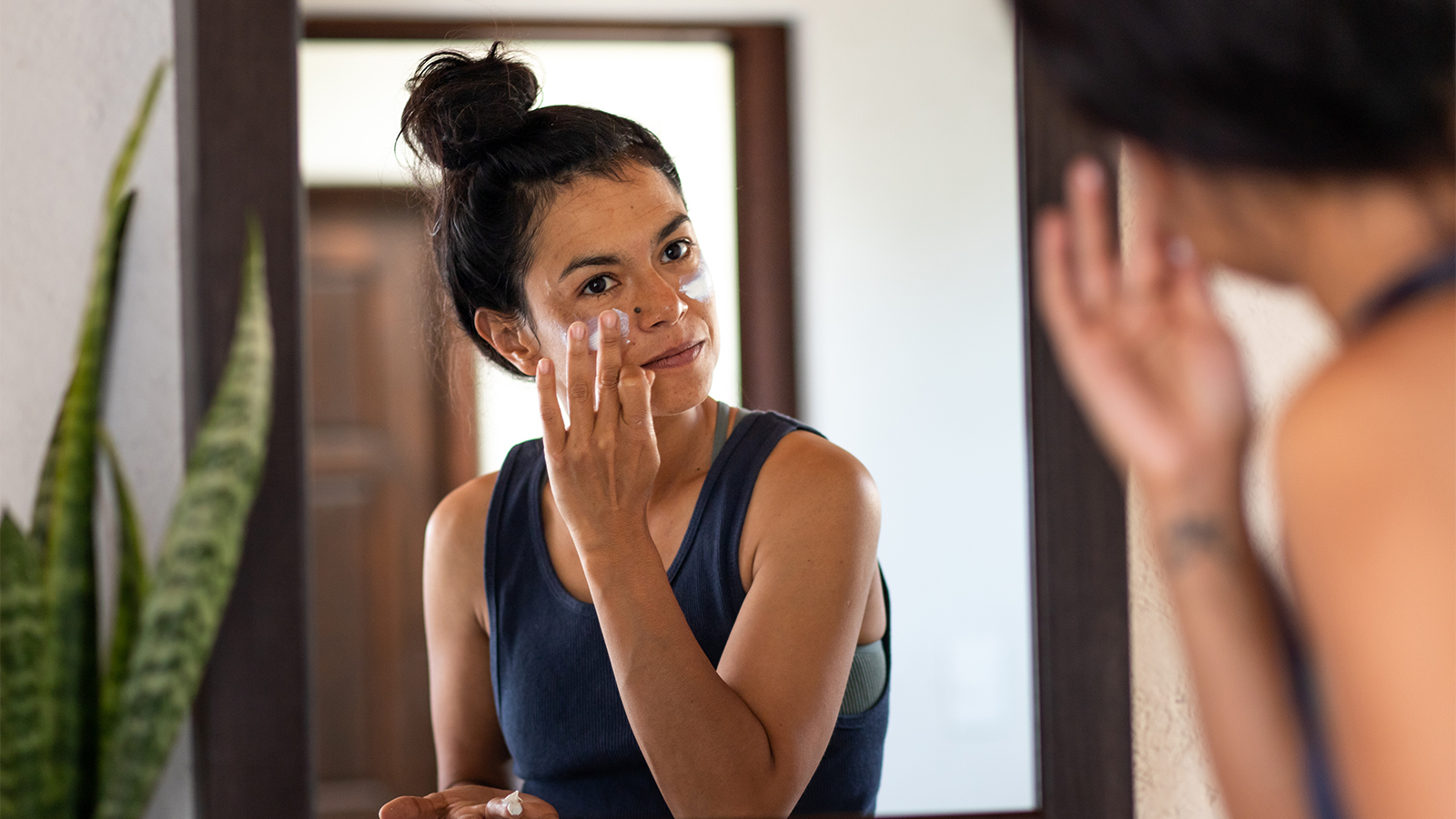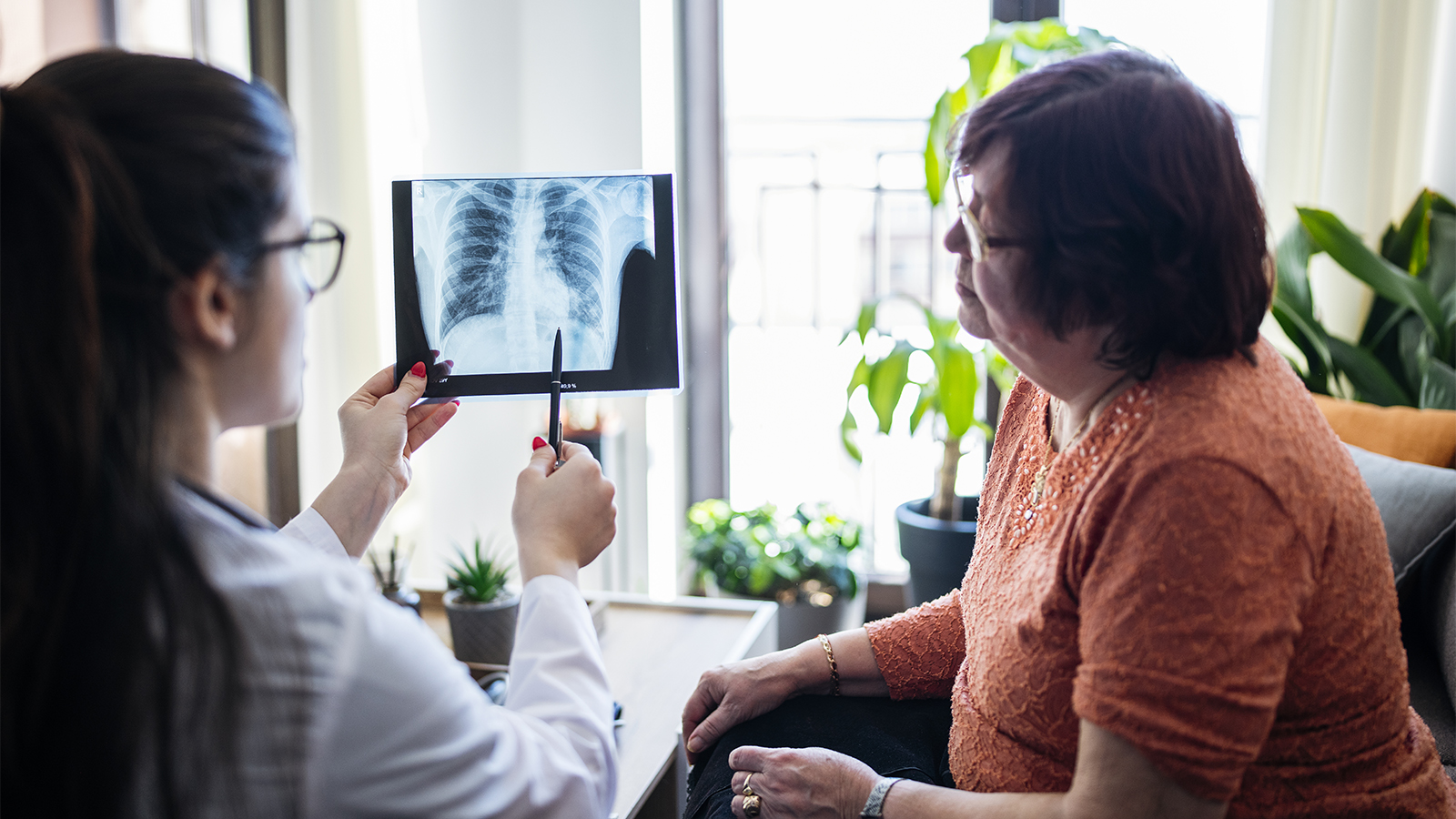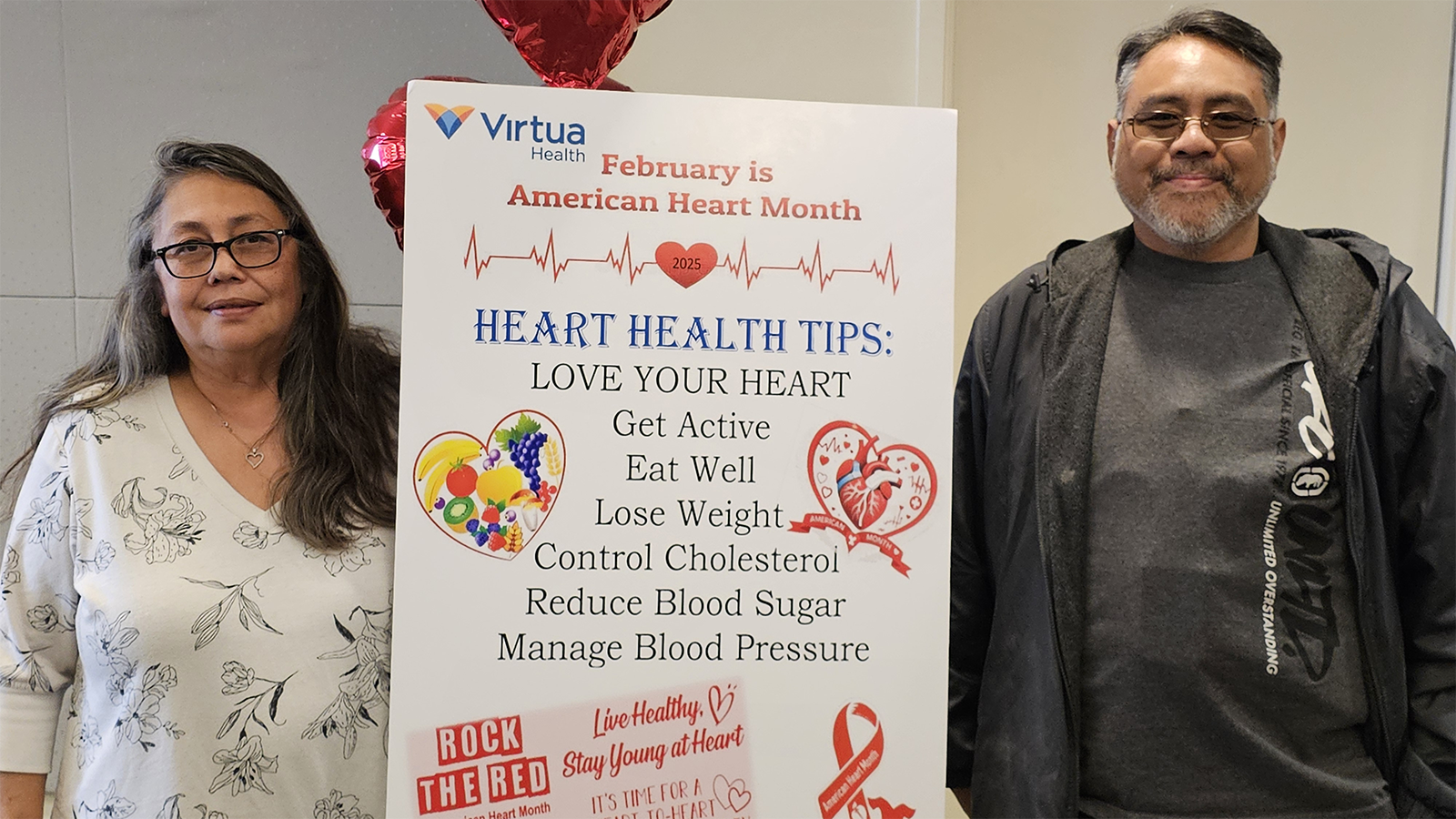6 Healthy Habits to Start in Your 20s for Better Lifelong Health
These expert tips will help you establish healthy habits in your 20s that can help you crush your health goals now and in the future. Get started today.
By Luisa Galdi, DO, Obstetrician and Gynecologist—Virtua OB/GYN – Cherry Hill
If you're a woman in your 20s, you may be enjoying excellent health—not yet thinking that what you do now can affect your health later. But, your 20s are a crucial time to establish routines and habits essential for a healthy life—now and down the road.
Here are some habits to establish now that can set you up for a healthy future.
Be careful with the convenience foods
Women in their 20s have busy lifestyles. The demands of finishing college or job training, starting a new career, and dating can mean that a carefully planned diet drops to the bottom of your to-do list. Of course, not all convenience meals are terrible for you, but many contain more calories, fat, and sodium than home-prepared meals and often don't include fresh fruits and vegetables.
Take a few hours on the weekend to plan your meals for the week and make a shopping list that includes basics like:
- Whole grains: Whole-wheat bread or tortillas, soba noodles, brown rice, or quinoa
- Lean protein: Canned beans, white-meat poultry, or canned tuna in water
- Low-fat dairy: Greek yogurt, string cheese, skim milk
- Veggies and fruits (fresh or frozen)
When you get home from the grocery store, wash and prep your fruits and veggies, and pre-pack some meals in containers for the days you'll be on the go. If you're new to food preparation and cooking, make an appointment with a registered dietitian who can help you develop a healthy eating plan based on your skills and food preferences.
Curb your alcohol intake
Ladies' nights, girls' weekends, and happy hours can lead women in their 20s to drink more than what's healthy for them. According to national guidelines, low-risk drinking for women means drinking only one alcoholic beverage (12 ounces of beer, 5 ounces of wine, or 1.5 ounces of liquor) per day AND no more than seven drinks per week.
Realistically, younger women may drink more than this. Bottom line, if you're worried that your drinking is a problem, it probably is. Making changes in those patterns now can help you reverse future health risks associated with heavy drinking. Sometimes young women drink to excess to cope with difficult life circumstances. If that's you, talk to your doctor about self-care and how you can manage your stress and mood.
Plan ahead if you're thinking about pregnancy
Starting a family might seem light-years away, or perhaps you're married and just starting to think about having kids. Ideally, a woman planning to get pregnant should take 400 mcg of folic acid daily, avoid smoking and drinking alcohol, and be up to date on Pap tests, pelvic exams, STD testing, and immunizations. If you have a chronic health condition that requires daily medication, know that some drugs can adversely affect a developing baby. Talk to your doctor about your current medications as early in the planning stages as you can.
Save your skin
Are you wearing broad-spectrum SPF 30 sunscreen every day, all year? If not, start today—especially if you're fair-skinned, as you're at higher risk for skin cancer. Exposure to harmful UV rays adds up over time. So the best time to minimize your risk for skin cancer, spots, and wrinkles is now. Also, if you have a lot of freckles or moles, get familiar with their size and shape. Then you'll know if one starts to spread or change, and you can get care right away.
Don't skip well visits and screenings
Set yourself up for good health by adding these reminders to your to-do list:
- Schedule a wellness checkup with a primary care doctor to manage your general health and make sure you're receiving your preventative health screenings and immunizations.
- Schedule a periodic (usually yearly) well-woman visit with your gynecologist as a part of your preventative health care. Your gynecologist will address contraception, fertility, sexually transmitted diseases (STDs), sexual health, your menstrual cycle, or any related concerns you may have. Your visit may include a breast and pelvic exam if needed.
- Start getting Pap tests at age 21 (even if you became sexually active earlier). If your Pap test is normal, your doctor may recommend having a Pap test every three to five years. If your results are abnormal, you may need screenings more frequently.
- Consider getting the HPV (human papillomavirus) vaccine if you didn't get it in adolescence. This vaccine protects you from HPV infection, which can cause cervical cancer and genital warts. If you’re 26 years old or younger, you should get the HPV vaccine series if you haven't already, regardless of when you started having sex. If you’re age 27 to 45, you're still eligible to receive the vaccine, but talk with your doctor first to determine if it would benefit you.
- Get your blood pressure checked at least every two years.
- Have your cholesterol checked at least once between ages 17 to 21. Those results indicate the frequency of future testing.
- Get at least a one-time TDAP [tetanus, diphtheria, and pertussis (whooping cough)] booster after age 19; after that, you need a tetanus booster once every 10 years.
- If you didn't have chickenpox as a child and you weren't immunized against it, it's not too late to get a varicella vaccine.
- Get a flu shot annually.
- Get tested for HIV, which is still a major health epidemic in the U.S. At a minimum, you should get tested at least once in your lifetime.
- Know your diabetes risk. If your BMI is higher than 25, you should have a fasting blood sugar test.
Be mindful of stress and mental health issues
There are female-specific issues that notoriously impact young women, especially sexual assault and intimate partner violence. A health care provider can help you find the health and social services needed for your recovery. If you're struggling with life issues or overwhelming stress, a therapist or psychiatrist can help you find relief and get you on the path to balance.
If you're ever in doubt about a symptom, a concern, or a crisis, know that you can always talk to your primary care provider or gynecologist.
Connect to women's health care
Call 844-896-6367 to find a Virtua Health primary care provider and gynecologist near you or make an appointment.
There's So Much More to Explore
Discover expert insights, inspiring stories, health tips, and more by exploring the content below!

10 Reasons to Schedule Your Colonoscopy Screening Today

At-Home Colon Cancer Tests vs. Colonoscopy: Which Screening Option Is Right for You?

How the Unique Stages of a Woman's Heart Affect Her Health

Complex Aortic Surgery Provides Lu’Shell Hope for the Future

HeartTalk Magazine

Are You Eating Too Much Salt? High-Sodium Foods to Watch For

4 Exercise Tips to Help You Reverse High Blood Pressure

Timely Heart Care During a Heart Attack Helps Joe Feed the Community

3 Reasons Why Now's the Time to Find Relief From Varicose Veins

Baseball Coach Turns Male Breast Cancer Surprise into Personal Mission

Young Breast-Cancer Survivor Has New Hope for Healthy Future

Is Cancer Hereditary? What You Need to Know About Your Genetic Risks

Your Guide to Mammograms: When to Get Screened and What to Know

Lifesaving Heart Care Creates a 'Bond That's Never Left Us'

How High Blood Pressure Affects Your Body

Do Not Get Burned by These Sunscreen Myths

5 Interesting Facts About Your Heart

Get to the Bottom of Blood Pressure Numbers

CABG Surgery: What Women Should Know About Heart Health and Healing

When to Take Action for a Stronger Heart

5 Key Facts About Proton Therapy for Cancer Treatment

3 Changes You Can Make Today to Lower Your Cancer Risk

A Lung Cancer Screening Could Save Your Life

Groundbreaking Renal Denervation Procedure Controls a Lifetime of High Blood Pressure

Patient Story: LVAD Mechanical Pump Strengthens Michael's Heart Function

Mitral Valve Surgery Keeps Yaneth Living the American Dream
Inside Look at Blood Vessels Aids PAD Treatment
Denise Davis: Pay Attention to Your Heart Health

Sweet Music: Trust, Teamwork Save Justin from Heart Attack

Complex Heart Surgery Nets James a Lifelong Friend

8 Key Steps to Better Blood Pressure Control

The HPV Vaccine: A Powerful Shield Against Cervical Cancer

How Does Breast Density Affect Your Mammogram?

Signs You Should Get Treated For Vein Problems

One New Heart Valve Saves Two Lives in the Tritten Family

What You Need to Know About Heart Failure

6 Numbers Key to Keeping Your Heart Healthy

Breast Cancer Diagnosis Inspires Catherine to Help Others

Five Mindfulness Tips That Can Help Heal Your Heart

Watchman Heart Device: a Technological Breakthrough for Blood Clot Prevention

Albert's Emergency Cardiac Surgery Is a 'Story of a Lifetime'

Love Your Heart: Essential Care Tips for Every Stage of Life

How Do I Measure My Blood Pressure at Home?

How Do I Improve My Cholesterol Levels?

3 Ways to Reduce Your Stroke Risk

Can Your Gut Health Affect Your Heart?
Advanced Heart Failure Therapies Get Bernadine Back to Full Speed
Firefighter's Successful Lung Cancer Care at Virtua

A Breast Self-Exam Saved Kristen's Life

Protect Your Child From HPV and Related Cancers

Keeping the Beat: Advanced Heart Surgery for Aortic Aneurysm

Heart-Healthy Summer Recipe: Hummus and Veggies

4 Delicious Heart-Healthy Recipes Perfect for Summer

Heart Healthy Summer Recipe: Dessert Parfait

Heart-Healthy Summer Recipe: Pear and Walnut Salad

Heart-Healthy Summer Recipe: Terrific Turkey Burgers

Rectal Cancer Surgery Gets Eileen Back to her Magical Life | Virtua Health
Atrial Fibrillation and Stroke: What's the Connection?
Robotic Surgery Helps Shelly Haney Return to Her Happy Place

New Technology Precisely Marks Suspicious Breast Lumps Before Biopsy to Ease Patient Anxiety
Heart Tests Your Doctor May Order
Managing Pregnancy for Mothers With Heart Conditions

Heart Healthy Recipe: Basil Pesto Pasta With Seared Vegetables

Heart Healthy Recipe Chocolate Avocado Chia Pudding
Keep Your Heart Rhythm in Check With Your Smartwatch
Mind Your Meds for Blood Pressure Risks
Master 3 Mens Health Issues
Personalized Breast Cancer Treatment Puts Choice In Womens Hands
Magic Pill for Heart Health? Cut 300 Calories a Day
3 Bad Habits Sapping Your Beauty
3 Smart Ways to Boost Your Heart Health
3 Best Exercises For Heart Health

Get Your Heart Pumping With These 25 Workout Songs
Your Chest Pain: Heartburn, Heart Attack, or Something Else?
Radiosurgery Delivers Targeted Treatment for Brain Tumors
3 Heart Healthy Recipes to Win Valentines Day
How Work and Home Stress Can Affect You
Why Improving Your Health Is Going To The Dogs And Cats
Why Younger Women Need Start NOW To Safeguard Their Hearts From Heart Attacks
Seeing a Social Worker at the Hospital
Start Reducing Your Cancer Risk Today
Can You Die of a Broken Heart?
Call Your OBGYN if You're Bleeding After Menopause
Know Your Endometrial Cancer Treatment Options
Mitral Valve Surgery Opens Doors for Improved Quality of Life
Robot Helps Spot Lung Cancer Early
6 Healthy Habits to Start in Your 20s for Better Lifelong Health
Do You Have a Fatty Heart?
Get Pumped! Assist Devices Can Improve Heart Failure Symptoms
Restoring Appearance and Spirit After Breast Cancer
A Cardiologists Advice on Heart-saving Emergency Cardiac Care
Virtua Doctor’s Experience Is a Warning for All About COVID-19 and Strokes
You May Feel Fine, but Gregory Says "Don't Skip Your Medical Care"
In Sickness and in Health: Couples Often Share Heart Disease Risk
"Reduce Your Heart Disease Risk With a Plant-based Diet"
4 Essential Cancer Screenings
How to Overcome Colonoscopy Fears
Hybrid Robotic Heart Surgery and Valve Replacement Restores Quality of Life
What You Need To Know About Cancer And COVID 19 Risks
Can Marijuana Hurt Your Heart Health?
Prostate Cancer Screening: What You Need to Know
6 Tips for Restoring Your Heart Rhythm
Eat Smart for Your Heart
Military Veteran Pam Carpino Offers Hope to Women With Triple Negative Breast Cancer
Cardiac Rehab: Strengthening Your Heart After Leaving the Hospital
Reclaim Your Strength and Spirit After Breast Cancer
Your Heart Needs A Good Nights Sleep
Are You at Risk for AAA—the Silent Killer?
The Cardio Oncology Team Protects Your Heart During Cancer Treatment
Get Relief From Painful Varicose Veins This Summer
Exercise Your Way to a Stronger Heart
Fish Oil: A Good Catch or a Scam?
My Heart Seems to Skip a Beat - Should I Be Worried?
Menu Planning? Try These 5 Heart-smart Substitutions

5 Health Risks Tied to Weight

